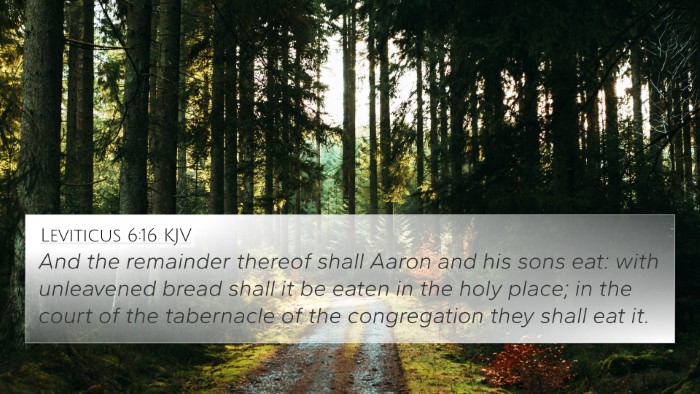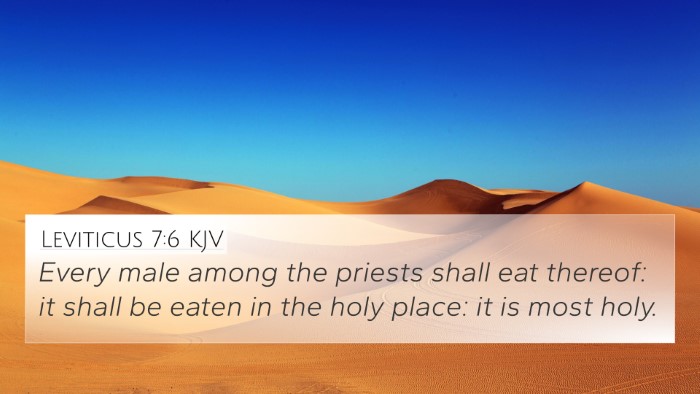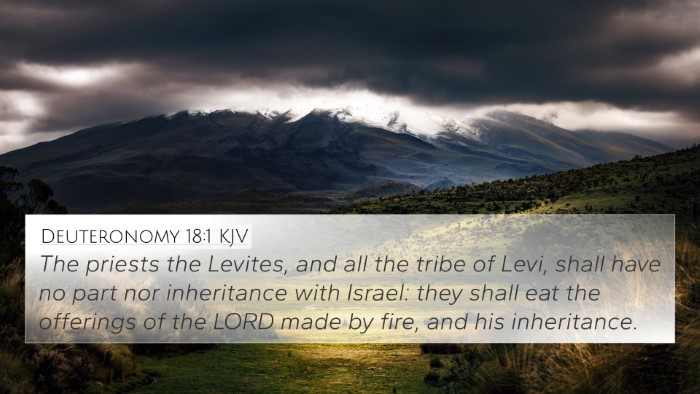Understanding 1 Corinthians 9:13
Verse: "Do you not know that those who minister the holy things eat of the things of the temple, and those who serve at the altar partake of the offerings of the altar?" (1 Corinthians 9:13, NKJV)
This verse highlights the principle of providing for those who serve in spiritual matters, specifically referring to the priests and the Levites in the context of the temple service. The Apostle Paul uses this analogy to support his argument regarding the rights of those who preach the gospel to receive material support.
Commentary Insights
Matthew Henry
Henry notes that this verse underlines a significant understanding of the Old Testament practices, as the priests who served in the temple were allowed to consume from the sacrifices presented. This establishes a precedent which Paul uses to argue for the support of gospel ministers, framing it as both a biblical and practical necessity for maintaining ministry.
Albert Barnes
Barnes elaborates on the context emphasizing that the laborer is worthy of his hire. He cites this verse to reflect how the church ought to sustain its ministers. Just as the Levitical priests were provided for by the offerings and tithes, so too should those preaching the gospel receive support. This reinforces the theme throughout the New Testament that spiritual leaders should not be burdened with the need to seek secular employment for their sustenance.
Adam Clarke
Clarke adds a practical observance to this concept, explaining that the principle of divine provision is consistent throughout scripture. He urges readers to realize that, like the priests, New Testament ministers should be recognized and supported by their congregations. Clarke suggests this is vital for the continuation of spiritual work and maintains the integrity and focus of those serving in ministry.
Biblical Cross-References
- Numbers 18:8-10: Discusses the share of the offerings that belong to the priests.
- Deuteronomy 18:1-5: Reinforces the provision for Levites and priests from the sacrifices of the people.
- Luke 10:7: Indicates that laborers deserve their wages, connecting to the support for gospel workers.
- 1 Timothy 5:18: “For the Scripture says, ‘You shall not muzzle an ox when it treads out the grain,’ and, ‘The laborer deserves his wages.’”
- Galatians 6:6: Encourages sharing all good things with the one who teaches.
- Hebrews 7:12: Discusses the change in the priesthood and its implications on the law of tithes.
- Philippians 4:15-16: Paul acknowledges the financial support from the Philippians for his ministry.
Significance of Cross-Referencing
The connections between Bible verses help illuminate the original intent and deepen our understanding of biblical texts. In the case of 1 Corinthians 9:13, examining related scriptures forms a robust dialogue about the support of spiritual leaders and the nature of ministry within the church context. It showcases a steady theme of provision as a divine principle stretching from the Old Testament to the New Testament church.
Closing Thoughts
As you delve into the word and explore these inter-Biblical dialogues, consider how cross-referencing these themes enhances your comprehension of scripture. Tools for Bible cross-referencing, such as Bible concordances and cross-reference guides, can enrich your study experience.











